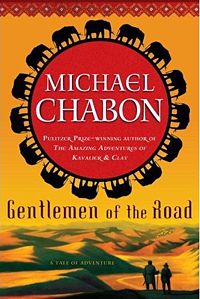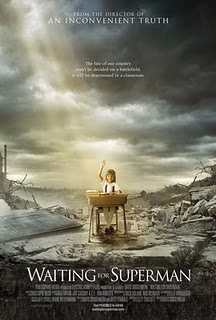This morning, I've been preparing my lecture in the undergraduate Western Music History survey I teach every year. In some ways it is strange to mark my school year by the slow and relentless progression of history, from Greco-Roman times to the present, but it lends a certain liturgy to my days. This afternoon, not even two weeks into the march, I reach one of my favorite lectures.
Last class, we began digging into the codification and construction of the Roman Catholic Mass, how it came to be, its elements and practices, its place in Medieval society. But today, we reach an interesting crossroads.
For the Medieval Christian musician, there was an uncomfortable paradox in your job. You understood the Bible to be the immutable, infallible word of God. You also understood the Mass to be given by God, the service that all participated in to be in accord with the rules of the faith. There was One God, One Word, one Church, one Liturgy.
But at the same time, you were given a gift of creativity and encouraged to use it in service to the church. Think of how we speak of creativity even today. Creative people receive inspiration – “spir” as breath, the breath of God.
So the paradox is that God gives both His unchangeable liturgy and the ability and desire to create. So imagine that you are a musically trained monk, working with a liturgy that is already perfect. How can you add creatively to that liturgy? The church already has God’s voice, what good is yours? And, perhaps more interestingly, how will the Church respond to your tampering with something that is given by God?
My graduate school adviser first introduced me to this paradox of the Medieval era, but I quickly made the connections to the present day. Church music is a fine and tricky line. Let's face it, most of our theology comes from our music and parishioners have strong attachments to their music. For those reasons, almost all churches have disagreements and splits over their music as often as, if not more often than, they have disagreements and splits over theology and personnel. Go back and read older books and articles and you'll quickly see much music, now accepted by the church, labeled as evil.
In preparing to discuss this paradox with my class, I came across a provocative example. Within the past year, numerous Episcopal churches have begun holding U2charists, in which the traditional hymns and responsive readings used during Communion are replaced with songs and lyrics by U2. The idea came from the book Get Up Off Your Knees: Preaching the U2 Catalog in which various preachers offer mediative reflections and sermons based on U2 songs. It was then easy to take the Eucharist liturgy and insert "God Part II" into the Credo or have the congregation sing "All I Want Is You" during Communion. This has been adapted all over the place, and numerous examples of liturgies like this cover the web.
I've always found many U2's lyrics and songs theologically profound, but that old paradox rears its head as I ponder attending a U2charist. U2 receives no royalties from the services (in fact, U2 requires that all money collected during an event go towards the UN's Millennium Development Goals), but isn't there some part of you that hears about this and wonders if the Lord's Supper suddenly becomes more about Bono than Jesus's sacrifice and redemption? Or if you attend the service and can only think about how the band isn't quite that good a cover band? In other words, can you really add anything to a liturgy without taking something else away?
It's the same age-old question, dressed up in leather and sunglasses.
Self-doubt in the tech industry
2 years ago




2 comments:
Many thanks for the musings! Would you mind if I posted them -- with full attribution and a link, of course, on the U2charist news and resources page I've started?
And I do appreciate that medieval paradox. Personally, as a musician, I often find myself a little distracted when someone in the choir is a bit off-key, the hymn tempo is significantly slower or faster than I'd have chosen, there's a particularly naff phrase or bit of theology in the hymns (or praise songs), and so on. It might stand out a little more with awkward covers of U2 songs, since we're used to hearing those on the radio or from CDs played professionally by The Real Band -- something a lot less likely for many of us in the case of hymns.
Many U2charists have the congregation sing along to CDs or DVDs of U2 themselves, which have the advantage of not requiring musicians or nearly as much rehearsal time, but that approach has a bunch of drawbacks too -- no adding another singing of the chorus or a call-and-response that would be easy for those who don't know U2 well to catch on to, no changing the key to make it easier for congregational singing, and a mix that's not designed for big halls or group singalongs, for example. When we did the very first U2charist in 2004, we used a live band. We were blessed with amazing musicians who had excellent equipment, and we rehearsed frequently and at length for months, and we deliberately did a number of the songs in a decidedly different style (e.g., doing acoustic versions of songs with a lot of electronics and effects) in a way that I think signalled clearly that we weren't trying to imitate U2 as such.
But there are always trade-offs like that in liturgy -- and that's what I appreciate most about your post. The U2charist has been a tremendous learning lab for me, and I think you've asked interesting questions about it that apply to much more than U2charists.
Sarah,
Thanks for your thoughts, and you are welcome to reprint this posting with a link back to the original.
Having worked as a church musician myself (and been in churches my entire life) this issues are often on my mind, especially issues of performance vs. worship. I applaud new ways of worshiping, but think balance is one of the most difficult parts of church music. When done well, though, it is transcendent and well worth the effort.
Post a Comment